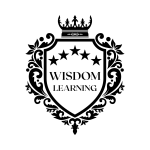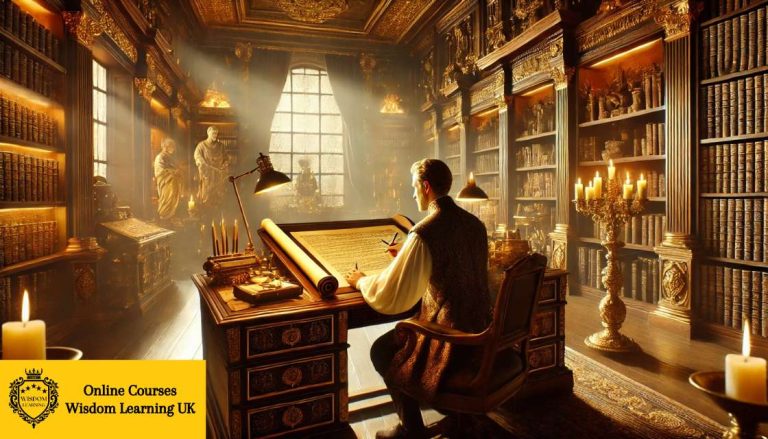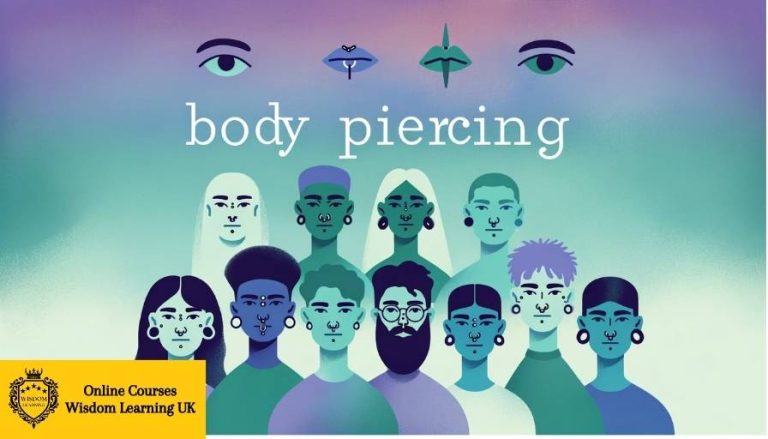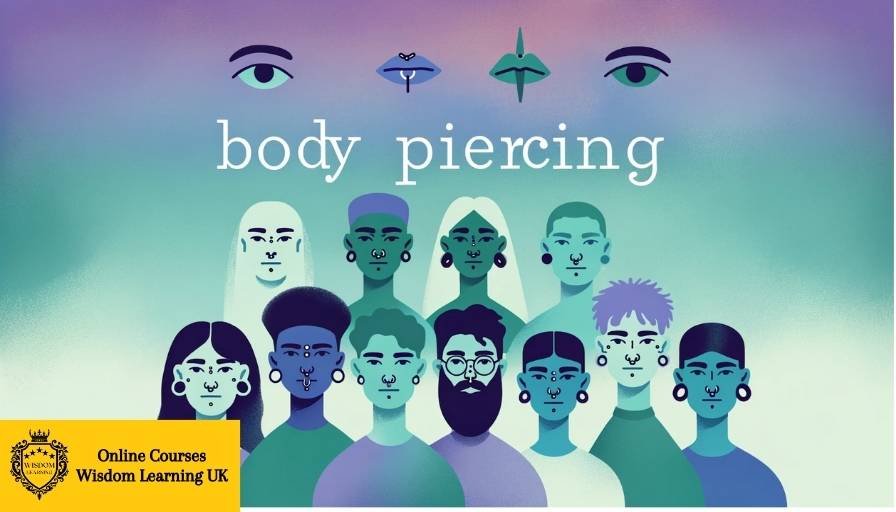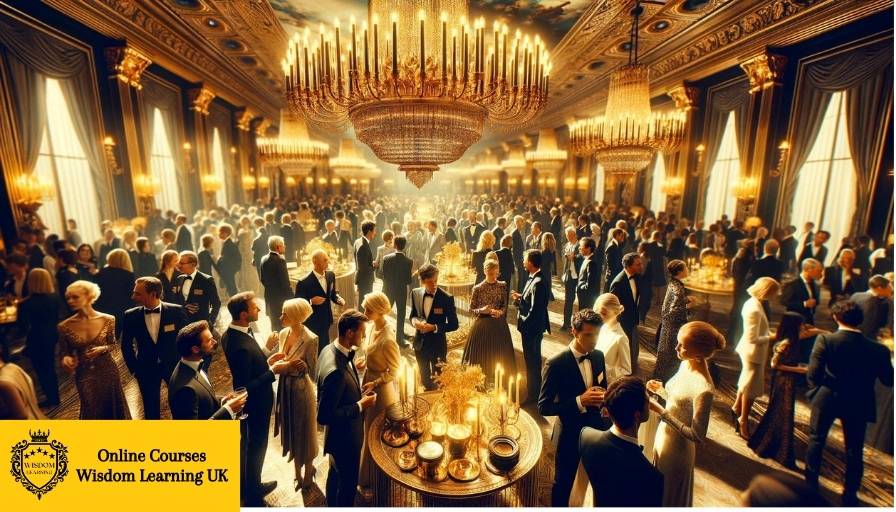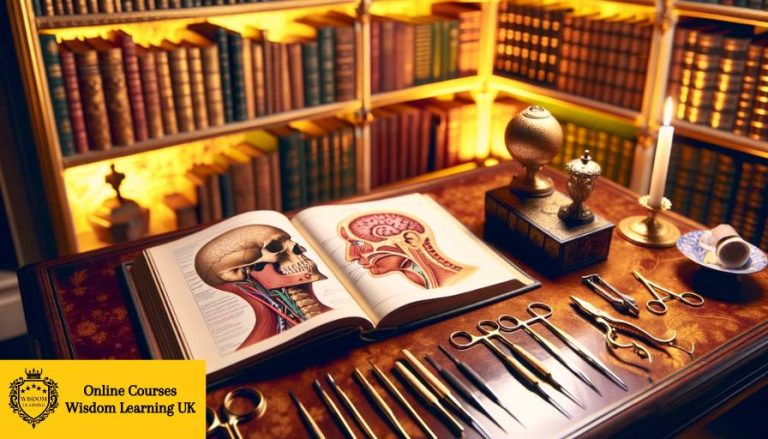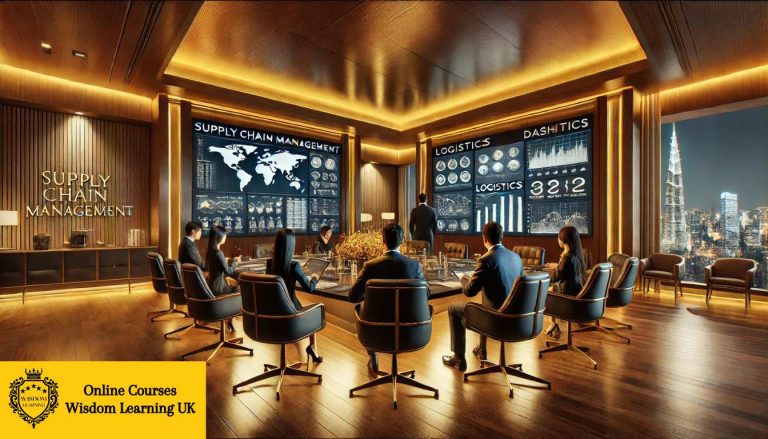Ancient History Level 3
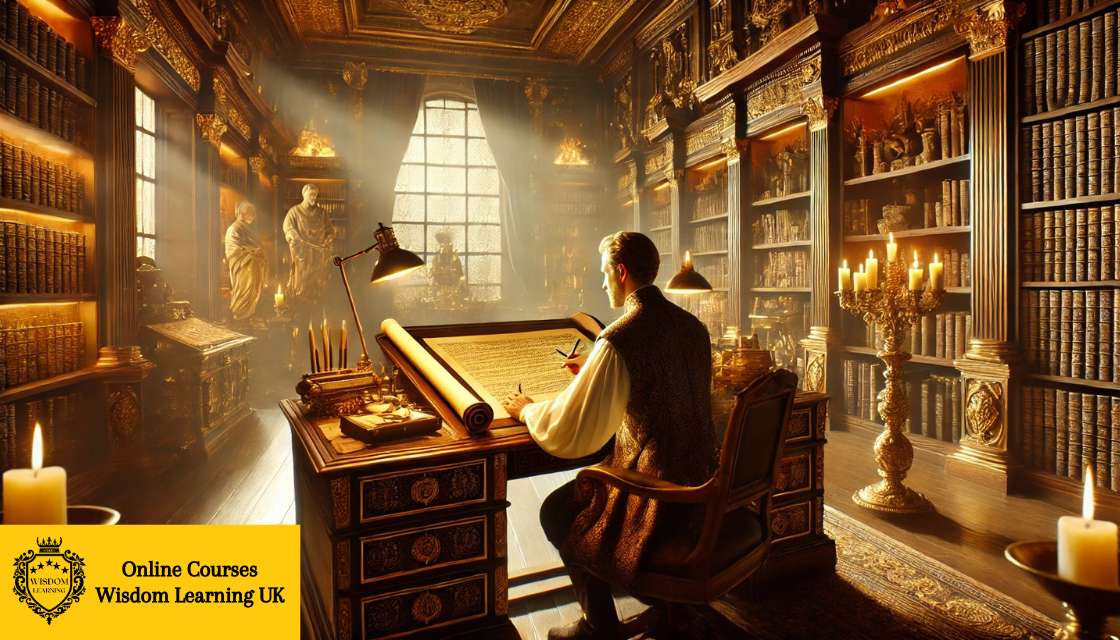
The Ancient History Level 3 is a meticulously structured course that delves into the rich tapestry of humanity’s past. Ancient history is the key to understanding how societies evolved, how innovations shaped human progress, and how the ideas of the ancient world continue to resonate today. With this Ancient History Level 3 course, you’ll embark on a journey through time, uncovering the secrets of the past and exploring the pivotal milestones in Ancient History.
From the origins of human societies to the grandeur of empires, the Ancient History Level 3 equips you with the knowledge to critically analyse historical events, cultural developments, and the interconnectedness of ancient societies. Whether you’re pursuing academic goals or simply have a passion for Ancient History, this Ancient History Level 3 course is the ideal platform for expanding your expertise.
Why Study Ancient History?
Studying ancient history is essential for understanding the roots of modern civilisation. The political systems, philosophies, art, and technologies of the ancient world have laid the foundation for contemporary culture and governance. The Ancient History Level 3 not only enhances your knowledge but also sharpens your analytical skills, making it a valuable for professional development or personal enrichment.
Key Features of the Ancient History Level 3 Course
Comprehensive coverage of major periods in Ancient History.
Exploration of Ancient History influential civilisations, including their culture, politics, and warfare.
Analysis of significant archaeological discoveries and their impact on our understanding of ancient history.
Development of research and dissertation-writing skills tailored to the study of Ancient History.
The Ancient History Level 3 is more than just a course; it’s a transformative journey into the heart of humanity’s past. With this Ancient History Level 3 course, we ensure that you will be fully aligned with your passion for the subject. Embark on this exciting educational journey and discover how ancient history continues to shape our world today.
Who is this course for?
The Ancient History Level 3 is designed for:
History Enthusiasts
Students and Scholars
Professionals in Related Fields
Lifelong Learners
Aspiring Researchers
How This Course Can Help
The Level 3 Ancient History is an invaluable asset for learners in the UK, offering:
Enhanced Knowledge of Ancient History:
Gain a robust understanding of how ancient civilisations shaped the UK and its cultural heritage.
Explore the influence of ancient history on British art, governance, and traditions.
Academic Opportunities:
Prepare for further studies in history, archaeology, or related fields by building a strong foundation in ancient history.
Access resources and tools tailored for UK-based learners studying Ancient History.
Career Advancements:
Open doors to careers in teaching, museum curation, or historical research by showcasing expertise in Ancient History.
Highlight your specialised knowledge of ancient history in professional environments.
Critical Thinking and Research Skills:
Develop transferable skills, including analytical reasoning and evidence-based research, which are highly valued in the UK job market.
Cultural Appreciation:
Enhance your understanding of the role of ancient history in shaping modern society and its connections to global heritage.
Community Engagement:
Participate in local history groups or archaeological projects, applying your knowledge of ancient history to real-world scenarios in the UK.
What I will learn?
- Comprehensive Understanding of Ancient History: Gain a deep knowledge of the origins, development, and legacy of ancient civilisations such as Mesopotamia, Ancient Egypt, Greece, Rome, and more.
- Critical Analysis of Ancient History Events: Develop skills to critically analyse the causes and consequences of major historical milestones in Ancient History.
- Mastery of Ancient History Themes: Understand key themes in Ancient History, including governance, religion, culture, art, and technological advancements.
- Appreciation of Global Ancient Civilisations: Explore Ancient History beyond Europe, including the Mayan, Aztec, Chinese, and African civilisations, to appreciate their interconnected contributions to global history.
- Research Skills in Ancient History: Learn advanced methodologies for conducting historical research, interpreting primary sources, and analysing archaeological findings.
- Effective Communication of Ancient History: Acquire the ability to present your understanding of Ancient History through structured dissertations, essays, and discussions.
- Awareness of Ancient History’s Modern Impact: Recognise the relevance of Ancient History in shaping today’s cultural, political, and social landscapes.
Course Curriculum
Ancient history Level 3 Preview
Preview
Module 1: Foundations of Ancient Civilisations
Topics Covered:
Understanding Ancient History: Definition, significance, and relevance to
modern studies.
From Hunter-Gatherers to Settled Societies: Analysing the origins and transition
to city-states.
Geography and Early Civilisations: Evaluating the role of geography in shaping
Mesopotamia, Egypt, the Indus Valley, and China.
Technological and Cultural Innovations: Examining Bronze Age advancements
and their impact.
Development of Writing Systems: Comparing early writing methods and their role
in record-keeping.
-
Understanding Ancient History
-
From Hunter-Gatherers to Settled Societies
-
Geography and Early Civilisations
-
Technological and Cultural Innovations
-
Development of Writing Systems
Module 2: Classical Civilisations—Greece and Rome
Topics Covered:
The Evolution of Classical Greece and Rome: Examining political, cultural, and
military history.
Greek City-States and Democracy: Understanding the Rise of Athens and the
Concept of Democracy.
Major Conflicts in Greece: The Persian Wars and Alexander the Great’s
Conquests.
Roman Republic and Empire: Analysing the politics, society, and law that
defined Rome.
Philosophy and Intellectual Contributions: Exploring Socratic thought and its
modern influence.
Cultural Achievements: Literature, art, and architectural innovations from Greece
and Rome.
-
The Evolution of Classical Greece and Rome
-
Greek City-States and Democracy
-
Major Conflicts in Greece
-
Roman Republic and Empire
-
Philosophy and Intellectual Contributions
-
Cultural Achievements
Module 3: The Cradle of Empires—The Ancient Near East
Topics Covered:
Rise and Fall of Near Eastern Empires: The Akkadian, Babylonian, and Assyrian
civilisations.
Interplay of Power, Religion, and Economy: Assessing Governance and Religious
Influence.
Cultural Contributions: Exploring the Hittites, Phoenicians, and early Hebrews.
Key Texts and Evidence: Analysing the Epic of Gilgamesh and Hammurabi's Code.
Archaeological Insights: Interpreting evidence from significant Near Eastern sites
-
Rise and Fall of Near Eastern Empires
-
Interplay of Power, Religion, and Economy
-
Cultural Contributions
-
Key Texts and Evidence
-
Archaeological Insights
Module 4: Ancient Egypt—Civilisation Along the Nile
Topics Covered:
The Role of the Nile: Examining its impact on Egypt’s economy, agriculture, and
culture.
Pharaohs and Governance: Understanding socio-political structures across the Old,
Middle, and New Kingdoms.
Religious Beliefs and Practices: Exploring gods, the afterlife, and mummification
rituals.
Architectural Wonders: Analysing the pyramids, temples, and the Sphinx as
reflections of cultural values.
Daily Life in Ancient Egypt: Investigating societal roles, economic systems, and
cultural practices.
-
The Role of the Nile
-
Pharaohs and Governance
-
Religious Beliefs and Practices
-
Architectural Wonders
-
Daily Life in Ancient Egypt
Module 5: Global Perspectives—Civilisations Beyond Europe
Topics Covered:
Exploring Ancient Civilisations Globally: The Mayan, Aztec, and Incan societies.
Trade and Cultural Exchange: Examining the impact of trade routes like the Silk
Road.
Sub-Saharan Africa’s Contributions: The Kushite and Axumite civilisations.
Asia’s Political and Cultural Evolution: Insights into Ancient India and China’s
Governance, Religion, and Art.
Assessing Global Impact: Understanding the interconnectedness of ancient
civilisations.
-
Exploring Ancient Civilisations Globally
-
Trade and Cultural Exchange
-
Sub-Saharan Africa’s Contributions
-
Asia’s Political and Cultural Evolution
-
Assessing Global Impact
Module 6: Wars, Strategies, and Diplomacy in Antiquity
Understanding Ancient Conflicts: Causes, Consequences, and Technological
Advancements in Warfare.
Legendary Conflicts: Analysing the Trojan War and its historical basis.
Punic Wars: Rome’s rivalry with Carthage and its implications for empire
building.
Persian-Greek Wars: Military strategies and outcomes of the Persian and
Peloponnesian Wars.
Diplomacy and Alliances: Evaluating treaties and power dynamics in the ancient
world.
-
Understanding Ancient Conflicts
-
Legendary Conflicts
-
Punic Wars
-
Persian-Greek Wars
-
Diplomacy and Alliances
Module 7: Religion, Mythology, and Philosophy
Topics Covered:
Comparative Religion: Examining religious beliefs and practices in major ancient
civilisations.
The Role of Myths: Understanding Pantheons and Their Societal Significance
(Greek, Roman, Egyptian, and Mesopotamian).
Philosophical Origins: Exploring the contributions of Socrates, Confucius, and
Zoroastrianism.
-
Comparative Religion
-
The Role of Myths
-
Philosophical Origins
Module 8: The Enduring Legacy of the Ancient World
Topics Covered:
Modern Influence of Ancient Civilisations: Evaluating their role in shaping
contemporary culture and governance.
Preservation of Historical Evidence: Discussing archaeology, museums, and
digital heritage.
Rediscovery of Ancient Texts and Artefacts: Exploring how historical
understanding evolves.
Ancient History in Popular Culture: Examining its representation in films,
literature, and media.
-
Modern Influence of Ancient Civilisations
-
Preservation of Historical Evidence
-
Rediscovery of Ancient Texts and Artefacts
-
Ancient History in Popular Culture
Module 9: Research methods and methodology in history
Topics Covered:
Research Skills and How to Conduct Research in Ancient History
Guidelines, laws, and standards to conduct research in the UK and internationally
for ancient history
-
Research Skills and How to Conduct Research in Ancient History
-
Guidelines, laws, and standards to conduct research in the UK and internationally for ancient history
Module 10: Dissertation Writing and Structure
-
Dissertation Writing and Structure
Assessment (Quiz)
MCQ
-
MCQ
Get Your Certificate & Transcript
Get Your Certificate & Transcript
-
Get Your Certificate & Transcript
Certificate of Completion - Free
Add this certificate to your resume to demonstrate your skills & increase your chances of getting noticed.
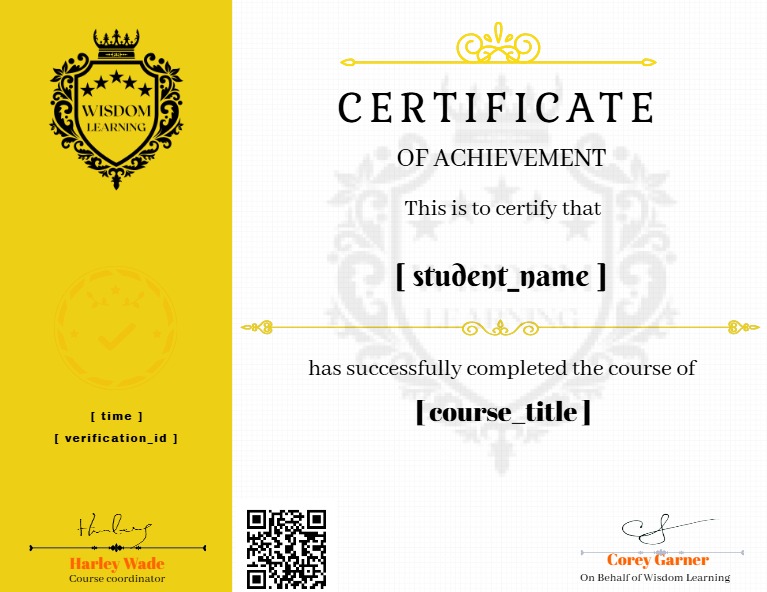
-
LevelAll Levels
-
Duration12 hours
-
Last UpdatedFebruary 27, 2025
-
Enrollment validityEnrollment validity: 365 days
-
CertificateCertificate of completion

